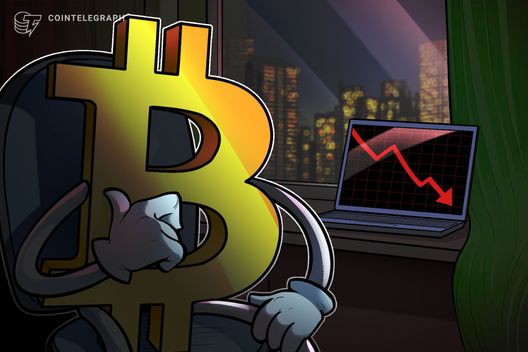Major cryptocurrencies experienced two-way price action early Friday, as the dollar remained bid against major fiat currencies following President Donald Trump's announcement of new tariffs.
Bitcoin (BTC) fell to $114,290, nearly testing the bullish trendline drawn off April and June lows, but has since recovered to trade near $115,900, according to CoinDesk data. Ether (ETH), the second-largest token by market value, mimicked BTC's price action, erased the early drop to $3,616 to trade near $3,690.
The early jitters likely stemmed from Trump's wide-ranging tariffs and the continued rise in the dollar index (DXY) to above 100, the highest since late May. The DXY, which tracks the value of the greenback against major fiat currencies, has gained over 3% in four weeks, hinting at potential financial tightening that often prompts traders to reduce their exposure to riskier assets.
Inflation fears lift DXY
According to Robin Brooks, a senior fellow at the Brookings Institution, signs of tariff-led inflation in the U.S. are driving the dollar higher.
"There's all kinds of reasons people give why the Dollar has fallen this year. At the root of all that stuff is a simple macro story: tariffs were supposed to lift inflation, and that just didn't happen as fast as people expected. Well, it's happening now. Inflation is coming...," Brooks said on X.
Late Thursday, Trump announced sweeping tariffs on a global scale. The new order retained the “universal” tariff for goods coming into the U.S. at 10%, the level announced on April 2. That rate, however, will be applied only to countries with which the U.S. has a trade surplus. Countries exporting more to the U.S. will face a 15% tariff floor. Meanwhile, some Southeast Asian countries have been hit with bigger tariffs.
These additional tariffs are likely to exacerbate the inflationary impact of the taxes announced earlier this year. Data released Thursday showed the theimpact of the initial tariffs crept into the Fed's preferred inflation measure, the core PCE, in June
The personal consumption expenditures price index rose 2.6% year-over-year in June, up from 2.4% in May. The core figure, which excludes the volatile food and energy prices, rose 2.8% over the year, matching May's pace and tied for its highest since February.
The renewed upswing in inflation will likely make it harder for the Fed to cut rates rapidly as desired by President Trump. Early this week, the central bank left rates unchanged at 4.25%, while squashing traders' hopes of renewed rate cuts from September.
"Markets have walked back expectations for a September rate cut. According to the CME FedWatch Tool, the odds of a cut next month have fallen to just 41% - down from 58% a week ago and over 75% a month ago. The Fed’s decision to hold rates steady this week and Chair Powell’s call for “greater confidence” in disinflation have clearly resonated," Matt Mena, crypto research strategist at 21Shares, said in an email.
Mena added that the focus is now on Friday's U.S. nonfarm payrolls report.
Yen slides ahead of payrolls
The Japanese yen depreciated past 150.50 per Dollar in Tokyo Morning, hitting the lowest level in four months.
The decline follows Thursday's comments by BOJ Governor Kazuo Ueda, which indicated that the Japanese central bank is cautious about implementing an additional rate at an early date.
Both the yen and BTC are likely to experience increased volatility following the release of Friday's payrolls figures.
"The data likely determine whether Powell has the green light to act - or whether the Fed stays sidelined," Mena said. "For crypto, looser financial conditions would be a major tailwind. Bitcoin has historically tracked global liquidity with a short lag. If labor data confirms a cooling economy and the Fed pivots, BTC could continue its grind higher, with $150K and $200K still in play this cycle."

 6 months ago
406
6 months ago
406













 English (US) ·
English (US) ·